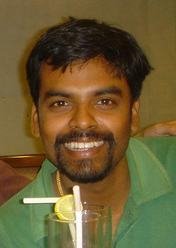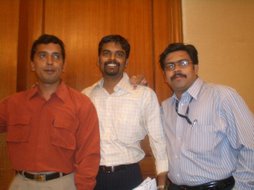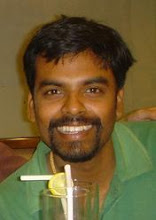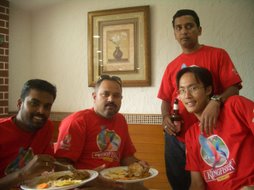Source - Rediff.com; Claude Arpi (A very Interesting Read)
In Burma, the situation seems to be settling down. Is it for the good of the people? That is another question.
Anyhow, the brutal generals and Aung Saan Suu Kyi, the Nobel Peace Prize laureate, have agreed to talk. Media reports say the 'two fiercely opposed sides take cautious, conciliatory steps to end the two-decade long deadlock'. Suu Kyi's party is ready to make some 'adjustment' while the junta is prepared to nominate a 'mild' general to hold talks with the democracy leader.
The 'negotiations' will probably lead nowhere but the generals, and behind them their mentors in Beijing [Images], need some breathing space at a time when international pressure is mounting and the Olympic Games, with the sacrosanct Truce, are in sight.
For decades, China has been the major factor in the Burmese tragedy for various reasons. First and foremost are the economic considerations. Generally, Beijing finds it more expedient to do business with totalitarian regimes such as Sudan or Burma. Chinese business strives when Western (and Asian) companies' concurrence is absent due to international sanctions. In Burma today, not only is the Chinese government involved in mega projects (such as the oil pipeline to Kunming in Yunnan province), but the Chinese Diaspora runs everything from grocery to retail shops or restaurants in all major cities as well as in remote provincial towns. It is true that China has no problems with human rights violations, labour standards or other ethical issues; in their own country, similar issues are also side tracked to make place for the economic boom.
The problem is that the benefits for the Burmese people are short term and restricted to very few in the entourage or families of the ruling clique. In the long run, as in Baluchistan or Africa, the local population realises that they are subject to a new form of colonisation, but what can they do?
Beijing has a number of economic interests in Burma. Dr Kanbawza Win, a former secretary of foreign affairs of the prime minister of Burma, now a professor in the School of International Studies in British Columbia University wrote: 'Economically, China's presence, particularly in northern Burma, has exploded. In 15 years cross-border trade went from $ 15 million to over $ 1 billion. A flood of inexpensive Chinese goods now dominate the Burmese consumer market.' He quoted a foreign correspondent, Bertil Lintner, who interviewed a Chinese resident describing 500 military trucks crossing the Sino-Burmese border heading for South Burma. This trend started soon after the crushing of the student revolt in 1988. As a result, a city like Mandalay is today a Chinese city run by Chinese money. It explains why Suu Kyi has no option but to compromise with the junta and the Big Brother behind.
Another issue is the demographical change tolerated by the junta during the last two decades. In a strategy which is very similar to the one in Tibet (especially after the arrival of the train), Beijing plans to change Burma's demography, making the nation a Chinese colony.
It is officially estimated that more than one million farmers, businessmen or workers have migrated to Burma during the last 10 years alone. Some say that the official figure should be multiplied by three to be closer to reality. Imagine what would happen if tomorrow Burma became a democratic nation and a nationalist leader would take over the reins of the nation's destiny. A backlash would certainly happen and most immigrants might be sent back to where they come from. What would happen next? Yunnan province of Western China (from where the migrants originate) would experience unemployment, social unrest and probably riots (let us not forget that China last year witnessed 100,000 riots, big and small, mainly about unemployment and environmental issues).
Western democracies have been vociferous about the 'democratic' process in Burma. To take France's [Images] example, the spokesperson of the ministry of foreign affairs stated: 'The Burmese people cannot bear anymore to have been deprived for the past 20 years of the most elementary rights; further the people wish to be assured of decent life conditions.' It warned the junta that 'the generals will be fully accountable for the security of the protesters in front of the international community.' These are nice words, probably useful for Beijing to hear, but the question has wider ramifications, especially given the opening of the 17th Congress of the Chinese Communist Party in Beijing today.
But democracy will not be on the agenda of the Congress.
While promoting the building of a harmonious society, Hu Jintao has first to make sure that the different political blocs and social-economic alliances get their share of the economic progress and that his prot�g�s are in key positions. He will therefore state the usual platitudes, such as 'boosting the people's participation in politics in an orderly and incremental fashion'. But less than a year before the Olympic Games, the situation remains far from clear on the ground.
Hu is scheduled to repeat several sections of a speech delivered to the Central Party School in late June. He will introduce to the Chinese deputies his new concept, the 'Four Insistences'. The Communist Party 'unswervingly insists' on four objectives: 'thought liberation', 'reform and open-door policy', the 'theory of scientific development and constructing social harmony', and 'the materialisation of comprehensive prosperity'.
Even our Indian comrades may not see the difference between the previous Four Cardinal Principles (Marxism-Leninism and Mao Zedong Thought, party leadership, the socialist road, and 'democratic proletarian dictatorship') and the Four Insistences, but this jargon is probably the best way to diffuse a far more serious time bomb, the introduction of democracy in China.
The China Brief of the Jamestown Institute recently quoted Du Daozheng, publisher of the liberal journal Yanhuang Chronicles who wrote: 'A number of liberal cadres, including those who had served under Hu Yaobang and the late Zhao Ziyang, another reformist party chief, are lobbying with the party leadership to make significant commitments to political change.'
The Politburo and its Standing Committee may not be the one-block it appears from outside. Disciples of progressive leaders such Hu Yaobang and Zhao Ziyang are still around. One remembers seeing Premier Premier Wen Jiabao (today apparently an ally of President Hu) behind his mentor and Secretary General of the Party, Zhao Ziyang, when the latter tried to compromise with the students on Tiananmen Square in May 1989.
In an article published by the Xinhua News Agency in February 26, 2007, Wen said that 'science, democracy, the legal system, freedom and human rights are not something peculiar to capitalism.' He went a step further when he stated: 'Rather, they are common values pursued by [all] mankind', 'the philosophical precept of harmony without uniformity' and 'people are the foundation of the nation.'
Ironically, when he made a similar statement at a press conference after the plenary session of the National People's Congress a month later, several of his remarks disappeared from the official transcript published by The People's Daily.This tends to demonstrate that a debate still exists in China, though Hu's main objective in the Congress is to consolidate his power base. As Xinhua put it, the party must raise its guard against 'non-Marxist ideological trends' and 'cacophonous and impure noises', in other words democracy.
In these circumstances, it is doubtful that Beijing will allow any 'democratic' experiment in Burma, for it could have too serious implications within Communist China.
In the meantime, the Chinese government is reported to have earmarked 10 billion yuan ($1.3 billion) to boost China's internet police squads. In anticipation of the Olympics [Images], a large number of too outspoken web sites and blogs have already been closed down.
In a recent speech, Hu asserted: 'Morality is a key factor to the country's development, social harmony and the people's happiness.'
Well, it depends on what one calls 'morality'. The frail Aung San Suu Kyi may not have the same definition.
Tuesday, October 16, 2007
Subscribe to:
Comments (Atom)




